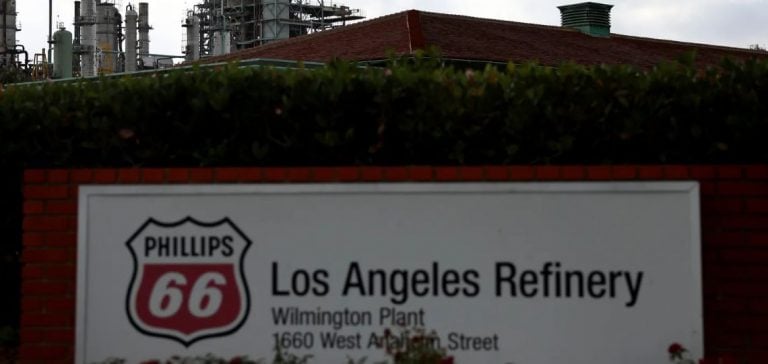Phillips 66 has announced the closure of its Wilmington, California refinery, with a capacity of 139,000 barrels per day, scheduled for the fourth quarter of 2025. This decision is driven by evolving market conditions, not by recent state regulations targeting the refining sector.
The closure announcement, made on October 16, comes two days after Governor Gavin Newsom signed Bill ABX 2-1. This legislation grants the California Energy Commission (CEC) the authority to regulate the state’s refinery operations to stabilize gasoline prices by increasing fuel inventories.
Impact on the Energy Market
Phillips 66 specified that it will continue to supply gasoline from both internal and external sources, as well as renewable diesel and sustainable aviation fuels from its Rodeo Renewable Energy Complex in the San Francisco Bay area. This decision does not imply a complete withdrawal of the company from the California market.
The closure of the Wilmington refinery accounts for 8.18% of the state’s total refining capacity, ranking it as the seventh largest of California’s 14 refineries, according to CEC data. This capacity reduction contributes to an ongoing contraction in refining in California, which has decreased from 2.5 million barrels per day in 1984 to 1.62 million currently, according to the U.S. Energy Information Administration.
Reactions from the Sector and Authorities
Market analysts were not surprised by this closure, noting a decline in gasoline demand in California. According to California’s Department of Tax and Fee Administration, taxable gasoline sales decreased from 15.6 billion barrels in 2017 to 13.6 billion barrels in 2023. Additionally, aviation fuel demand has also dropped.
John Auers, an analyst at Refined Fuel Analytics, stated, “We expected the closure of at least one of the three smaller refineries due to the market dynamics cited by Phillips 66.” He added that the adoption of Bill ABX 2-1 likely influenced the timing of this closure.
Consequences for Employment and the Community
The closure of the Wilmington refinery will affect approximately 600 employees and 300 contractors. Union representatives, notably the United Steel Workers (USW), have expressed their concerns. Mike Smith, head of the USW’s National Oil Bargaining Program, stated that the union will seek to mitigate the impacts of the closure on its members and local communities.
Future and Adaptation
Phillips 66 has engaged two firms to evaluate the future use of the 650-acre sites in Wilmington and Carson, California. Although no specific plans have been disclosed, the company has already converted its Alliance refinery in Belle Chasse, Louisiana, into a terminal and is considering a similar transformation for Wilmington. This repurposing could meet the storage requirements imposed by Bill ABX 2-1.
The CEC praised Phillips 66’s decision, highlighting that it aligns with California’s transition to cleaner energies. Siva Gunda, Vice Chair of the CEC, stated that Phillips 66’s plan to replace the lost production with creative solutions is a necessary example to minimize impacts on Californians.






















